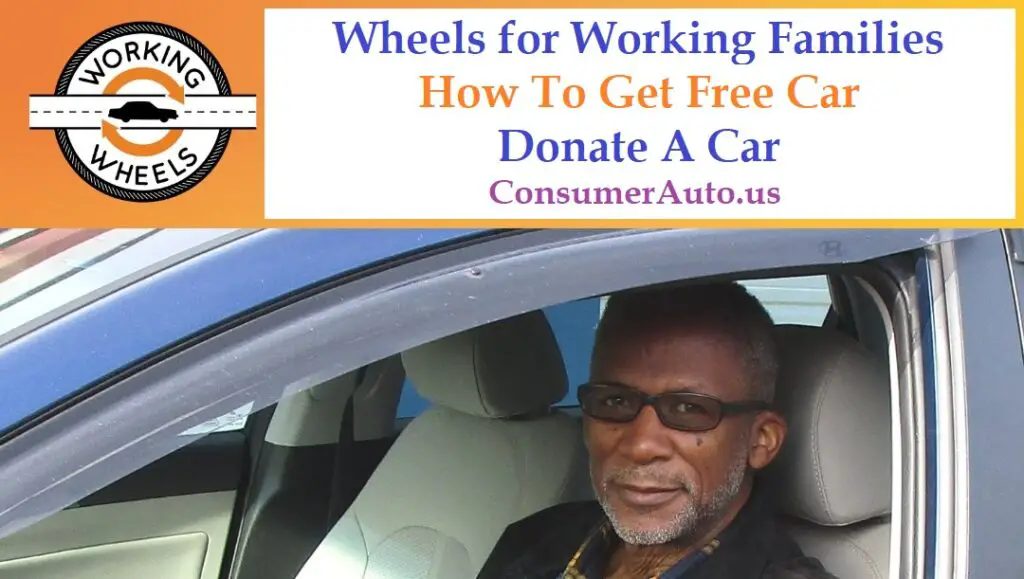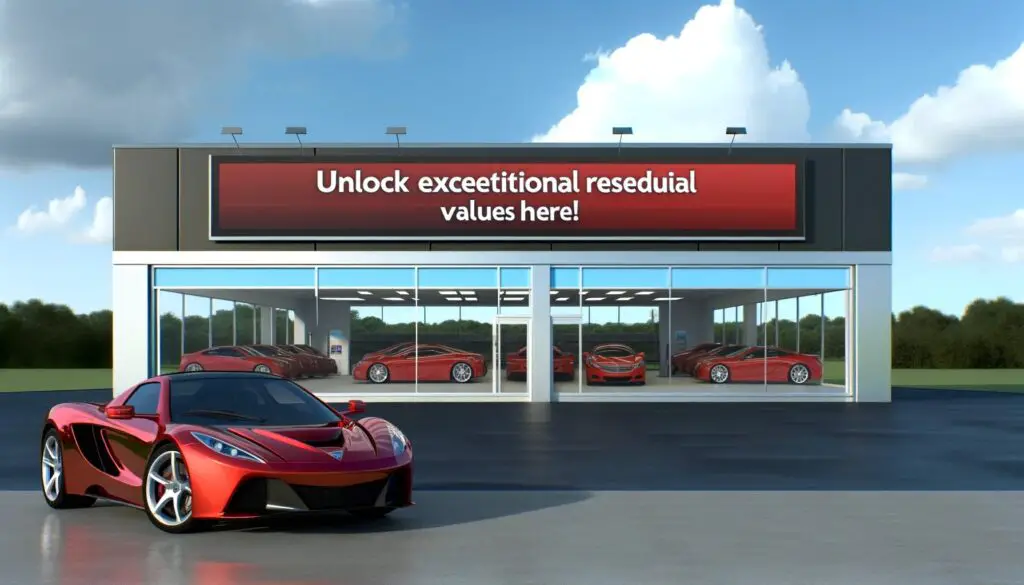Transportation plays a vital role in our daily lives, enabling us to commute to work, access essential services, and engage in social activities. However, not everyone has easy access to reliable transportation, which can pose significant challenges, especially for working families. In this article, we will explore the impactful work of Working Wheels WNC, a non-profit organization dedicated to empowering working families in Western North Carolina (WNC) by providing them with reliable transportation options.
The Mission of Working Wheels WNC
Working Wheels WNC is committed to breaking down transportation barriers faced by low-income working families in the WNC region. The organization believes that reliable transportation is a key factor in promoting economic stability, accessing job opportunities, and improving overall quality of life. With this mission in mind, Working Wheels WNC has been transforming the lives of countless individuals and families since its establishment.
How Working Wheels WNC Helps
Working Wheels WNC operates with a simple yet powerful approach. The organization accepts vehicle donations from individuals and businesses in the community. These donated vehicles undergo thorough inspections, repairs, and necessary maintenance to ensure their roadworthiness. Once the vehicles are ready, they are provided to eligible working families in need, enabling them to overcome transportation barriers.
Impacting Working Families
The impact of Working Wheels WNC’s efforts on working families in the region is truly remarkable. By providing reliable transportation options, the organization opens doors to employment opportunities that were previously out of reach. Working parents can commute to work with confidence, eliminating the stress and challenges associated with unreliable public transportation or limited personal vehicle access.
The provision of a reliable vehicle not only facilitates daily commutes but also empowers working families to expand their horizons. They can pursue higher-paying job prospects, access education and training programs, and participate in community activities. This newfound mobility allows them to create a better future for themselves and their families.
Collaborations and Community Support
Working Wheels WNC recognizes that their impact goes beyond providing vehicles to families. The organization actively collaborates with local businesses, government agencies, and community partners to ensure that the services and support offered are comprehensive and sustainable.
Partnerships with automotive repair shops and dealerships play a crucial role in maintaining the donated vehicles and providing necessary repairs. Additionally, community organizations and volunteers contribute their time, resources, and expertise to support Working Wheels WNC’s mission. The collective efforts of these stakeholders create a network of support that strengthens the impact of the organization.
How to Get Involved
If you’re passionate about empowering working families and improving transportation access in Western North Carolina, there are several ways you can get involved with Working Wheels WNC:
- Donate a vehicle: If you have a vehicle that you no longer need, consider donating it to Working Wheels WNC. Your donation can make a significant difference in the life of a working family.
- Volunteer: Working Wheels WNC welcomes volunteers who can contribute their time and skills in various capacities, such as vehicle inspections, repairs, administrative tasks, or fundraising efforts.
- Spread the word: Help raise awareness about the organization and its mission by sharing information about Working Wheels WNC through your social networks or community organizations.
How to Obtain a Free Car from Wheels for Working Families
Wheels for Working Families is a program dedicated to providing free cars to individuals and families in need. If you are facing transportation challenges and would like to explore the possibility of obtaining a free car, here are the steps you can follow:
- Research and Identify Eligibility Criteria: Start by researching the Wheels for Working Families program to understand their eligibility requirements. Each organization or initiative may have specific criteria related to income, employment, family size, and other factors. Determine if you meet the necessary qualifications to apply for a free car.
- Find Local Wheels for Working Families Programs: Explore if there are any Wheels for Working Families programs operating in your area. These programs are typically run by non-profit organizations, community groups, or government agencies. Check their websites, social media pages, or contact them directly to gather information about their application process and availability of free cars.
- Gather Required Documentation: Once you have identified a Wheels for Working Families program, gather the necessary documentation to support your application. This may include proof of income, employment verification, identification documents, proof of residence, and any additional documents requested by the program.
- Complete the Application: Fill out the application form provided by the Wheels for Working Families program. Ensure that you provide accurate and detailed information, as this will be crucial in determining your eligibility for a free car.
- Attend Information Sessions or Interviews: Some Wheels for Working Families programs may require applicants to attend information sessions or interviews. These sessions provide an opportunity for program representatives to assess your situation, understand your transportation needs, and determine if you are a suitable candidate for their assistance.
- Follow Up and Stay Engaged: After submitting your application, follow up with the Wheels for Working Families program to inquire about the status of your application. Stay engaged with the program by attending any additional meetings or workshops they may organize. This demonstrates your commitment and increases your chances of being considered for a free car.
- Explore Additional Transportation Resources: While waiting for a response from the Wheels for Working Families program, consider exploring other transportation resources available in your community. This may include public transportation options, car-sharing programs, or community-based initiatives aimed at providing affordable transportation solutions.
Remember, the availability of free cars through Wheels for Working Families programs may vary depending on funding, demand, and other factors. It’s essential to maintain realistic expectations and explore alternative transportation options while awaiting a response. Stay proactive, continue to seek opportunities, and remain persistent in your pursuit of reliable transportation.
Contacting Wheels for Working Families
If you would like to get in touch with Wheels for Working Families for further information or assistance, here are some common methods of contact:
- Website: Visit the official website of Wheels for Working Families, if available. Look for a “Contact” or “Get in Touch” page, where you may find a contact form or relevant contact information. Fill out the form or use the provided email address to send your inquiry.
- Phone: Check if a phone number is listed for Wheels for Working Families. This could be displayed on their website or other promotional materials. Dial the number provided and follow the prompts or speak to a representative directly to discuss your query or request.
- Email: If an email address is available, use it to send your inquiry or request for information. Compose a detailed message explaining your situation or question and send it to the provided email address. Be sure to include any necessary details or documents to assist with your inquiry.
- Social Media: Many organizations, including Wheels for Working Families, maintain a presence on social media platforms such as Facebook, Twitter, or LinkedIn. Visit their social media pages and send a direct message or post a public inquiry on their page. Remember to check for their official accounts or handles to ensure you are contacting the correct organization.
- Local Partners and Community Organizations: Wheels for Working Families may collaborate with local partners or community organizations. Reach out to these organizations to inquire about the program and how to contact Wheels for Working Families directly. They may provide you with additional guidance or contact information.
- In-person Visits: Depending on the organization’s availability and location, you may have the option to visit their office in person. Look for their physical address on their website or contact page and plan a visit during their designated hours of operation. This can be an opportunity to speak with someone face-to-face and receive personalized assistance.
Remember to be patient when awaiting a response as organizations like Wheels for Working Families may receive a high volume of inquiries. If you haven’t received a response within a reasonable timeframe, consider following up with a polite email or phone call to inquire about the status of your inquiry.
Conclusion
Working Wheels WNC is dedicated to empowering working families in Western North Carolina by providing them with reliable transportation options. Through their vehicle donation and distribution program, the organization has been instrumental in breaking down transportation barriers and creating opportunities for economic stability and growth. By supporting Working Wheels WNC, individuals and the community can come together to make a tangible difference in the lives of working families
Frequently Asked Questions (FAQ) about Wheels for Working Families
Here are some common questions that individuals may have about Wheels for Working Families, along with their respective answers:
1. How do I qualify for a free car from Wheels for Working Families?
Qualification criteria may vary depending on the specific program. Generally, eligibility is based on factors such as income, employment status, and family size. Contact the Wheels for Working Families program in your area to inquire about their specific eligibility requirements.
2. Is the car completely free, or are there any costs involved?
While the car itself is provided free of charge, there may be certain costs associated with the transfer of ownership, such as registration fees or insurance expenses. These costs can vary depending on your location and the program’s policies.
3. How long does the application process take?
The application process duration can vary depending on the program and the volume of applications received. It’s best to reach out to the Wheels for Working Families program directly to inquire about their estimated timeline for processing applications.
4. Can I choose the type of car I receive?
The availability of vehicle models and types may vary depending on the donated vehicles received by the program. While you may not have complete control over the specific make and model, the program will aim to provide a reliable and suitable vehicle that meets your transportation needs.
5. What if I don’t meet the eligibility requirements? Are there other transportation assistance options available?
If you don’t meet the eligibility requirements for Wheels for Working Families, there may be other transportation assistance options available in your community. It’s recommended to inquire with local government agencies, non-profit organizations, or community service centers to explore additional resources that can help address your transportation needs.
6. Can I donate a car to Wheels for Working Families?
Absolutely! If you have a vehicle that you would like to donate, reach out to the Wheels for Working Families program in your area to inquire about their vehicle donation process. Your donation can make a significant difference in the lives of individuals and families in need.
7. Can I volunteer for Wheels for Working Families?
Yes, many Wheels for Working Families programs welcome volunteers. You can contribute your time and skills by helping with vehicle inspections, repairs, administrative tasks, or fundraising efforts. Contact the program directly to inquire about volunteer opportunities and how you can get involved.
Remember that the answers provided above are general and may vary depending on the specific Wheels for Working Families program in your area. It’s always recommended to reach out to the program directly for the most accurate and up-to-date information.






1 thought on “Working Wheels WNC: Empowering Working Families through Transportation”